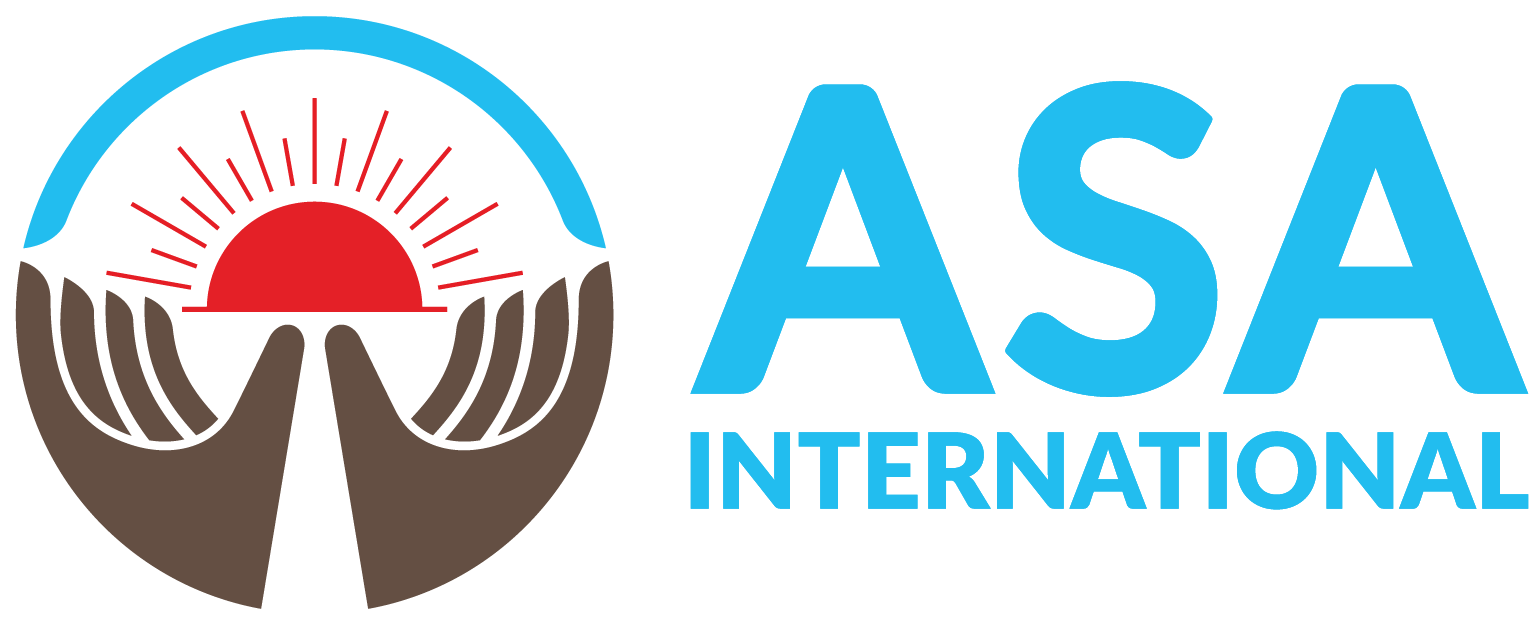ASA India’s contribution to the health and safety of the communities
Throughout the world, the Covid-19 pandemic has impacted the lives of many and the economy as a whole. In India, the lockdowns, which have been implemented over various stages in all states since March 2020, have restricted the movement of all people and immensely impacted the livelihoods of especially the people with a low income by further complicating their pursuit for a more regular income. Their small businesses often rely on local public transport and on buying and selling goods in public spaces, such as markets, where they meet with their customers. Both public transport and public spaces have been restricted for weeks at a time due to the lockdowns. An additional challenge for these people has been adhering to advised and/or mandatory measures, such as frequently washing hands with soap and sanitiser, maintaining basic hygiene and social distancing, due to the high population density in the urban areas and the lack of available resources in the rural areas where many of low-income people reside.
Community programmes
Over the years, ASA India’s community programmes have expanded in both scopes and reach, covering a range of education, health, and disaster management projects. Recently, the Company started various Covid-19 related activities. Prior to the first lockdown, soap and sanitation products were provided to all the clients via the client groups. To facilitate maintaining hygiene, another round of soap was distributed once the lockdown was over. In total, more than 70,000 soap bars were provided to 375,000 client groups. Additionally,196,000 reusable masks, made by and purchased from other ASA India clients, were provided to the clients.
Other existing programmes, like the ASA Pathsala tutoring programme, introduced online classes. Many students who were willing to study online, but did not have smartphones or tablet computers, received a free tablet. Moreover, to contribute to fighting the health crisis on a larger scale, ASA India made several significant donations to various (government) relief funds.
For their latest effort, considering the present need to increase the vaccination rate, ASA India decided to organise a free vaccination camp for its clients and a few of its employees living in the vicinity of the camp who had not been vaccinated yet.
“With our free covid vaccination camps for clients and family, we make our contribution and commitment towards a safe and healthy society.”
The Covid-19 vaccination situation in India
The mass vaccination programme in India began in January 2021. Initially, two vaccines were approved in India: the Oxford-AstraZeneca vaccine known as Covishield and the locally developed vaccine Covaxin by Bharat Biotech. Apart from these two vaccines, a few more have also been approved.
It is mandatory to register for vaccination using any government approved ID card such as Aadhar, Voter I card, a driving license or passport, on the government approved website or app (Cowin and Aarogya setu). The vaccines are available at government approved vaccination facilities such as public hospitals, municipalities and centres free of cost or for a fee from registered private hospitals and centres. Considering India's social, economic and geographic profile, completing the vaccination is a large and challenging task. This is because the vaccine is not widely available and accessible everywhere yet, the registration is somewhat technical and requires a computer or smartphone, and not everyone is willing to take the vaccine.
3.6% vaccination rate in India at the time of the 1st camp
This has resulted in a meagre 3.6% vaccination rate of India’s population at the time ASA India’s Covid-19 vaccination camp took place.[1]
Considering that the lives and businesses of low-income people have been affected by two lockdowns, the vaccine is the safest option ‘to get back to normal’ and is largely welcomed by them.
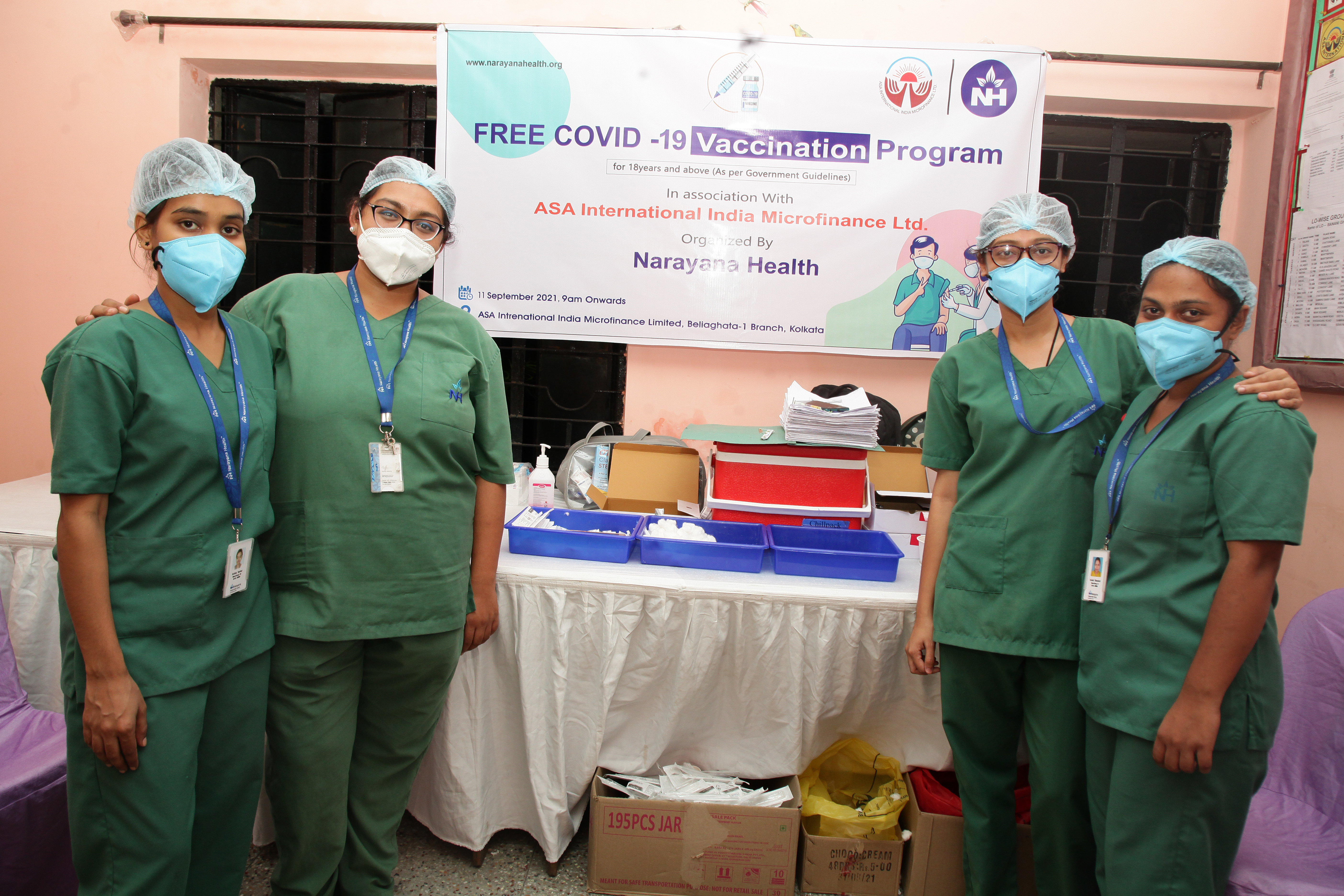
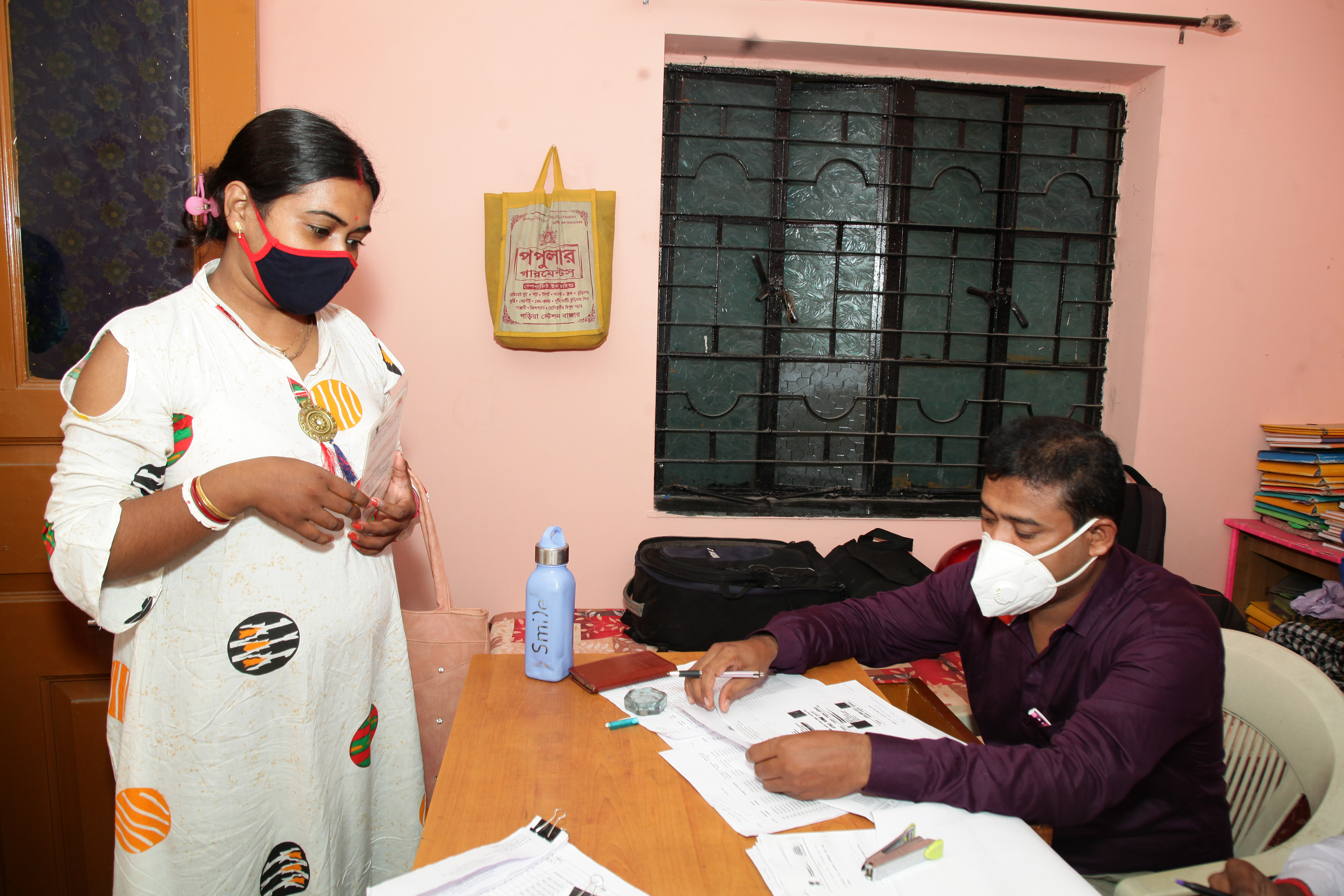
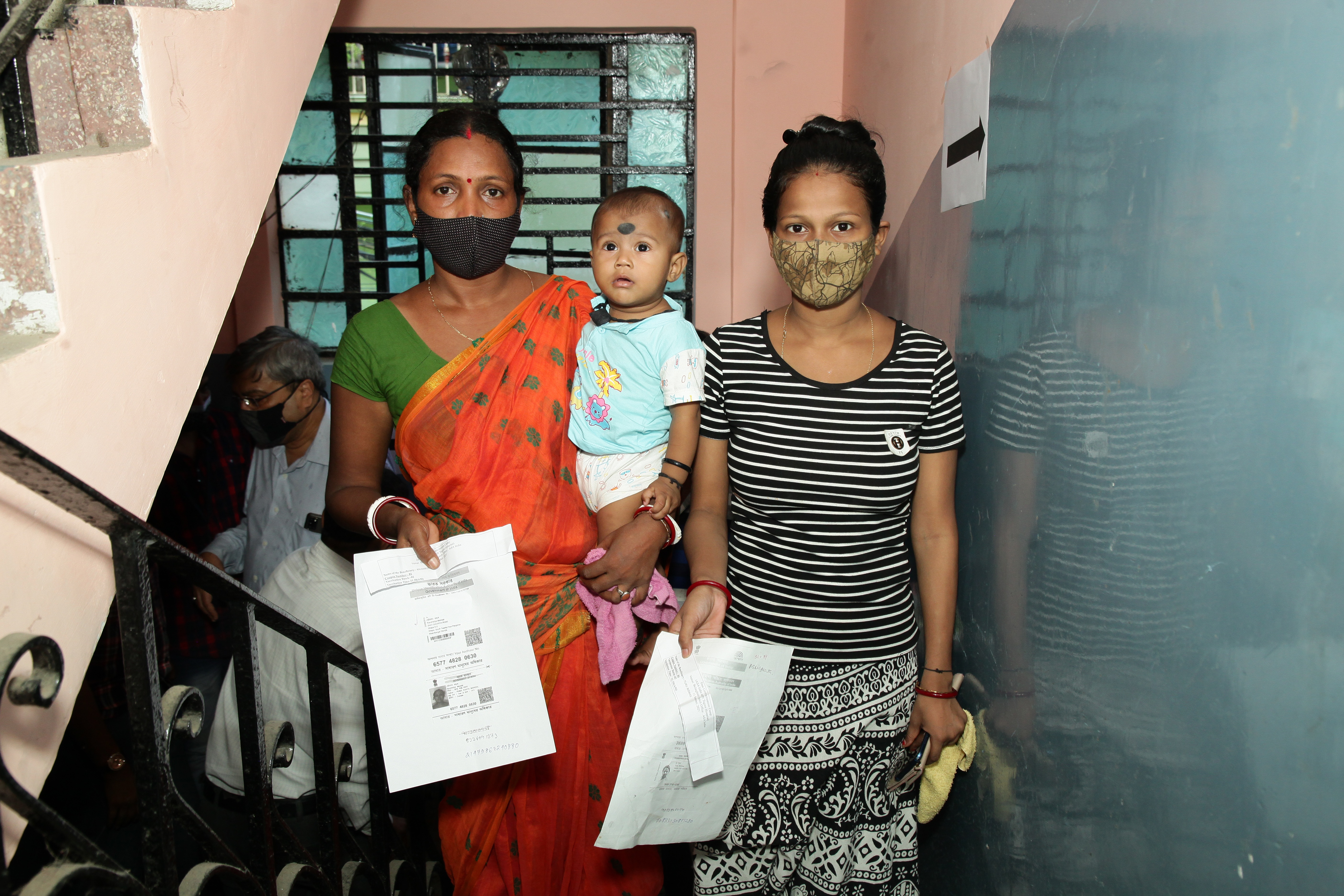
Update 1: The first Covid-19 vaccination camp
Considering the above, ASA India has decided to initiate a free Covid-19 vaccination camp in an area nearby Kolkata with a high population density, where many people need and want a vaccination but cannot easily arrange it on their own. The Rajarhat area in Kolkata was selected for the first free vaccination camp for over 400 of the Company’s clients, their husbands and a few members of the Company’s staff.
To adhere to the restrictions related to the lockdown, a suitable venue with ample space was found in a school building. To contribute to an efficient rollout of the programme, ASA India joined forces with Narayana Health, a nationally reputed health care organisation in India and already a partner of ASA India for the H.O.P.E cancer programme. Narayana Health covered the vaccine cost, a stand-by ambulance and a professional vaccination team. ASA India covered the day charge of the stand-by doctor and took care of the programme management: organising food, logistics, beneficiary selection, ensuring the beneficiaries reach the venue, and that their registration on Cowin was completed. Moreover, the mobile van, which ASA India previously donated to Narayana Health as part of project H.O.P.E, was used to transport the vaccine at the required temperature.
“I was contacted by the staff of ASA India and was told about the vaccination initiative. I wanted to opt for a vaccination, but was not able to arrange this before ASA India contacted me. Another MFI I have taken a loan from has not given me the same support. My registration on COWIN was done smoothly, and I was satisfied with the entire process.”
Prasenjit Mallick, a husband of one of the borrowers, said he was pleased with the smooth arrangement of the camp and the Company’s initiatives to accommodate and support the community in these difficult times.
Through this programme, ASA India contributes to the health and safety of the communities and the country’s health resilience as a whole. Considering the programme's success and the positive feedback from the beneficiaries, more vaccination camps are in the pipeline...
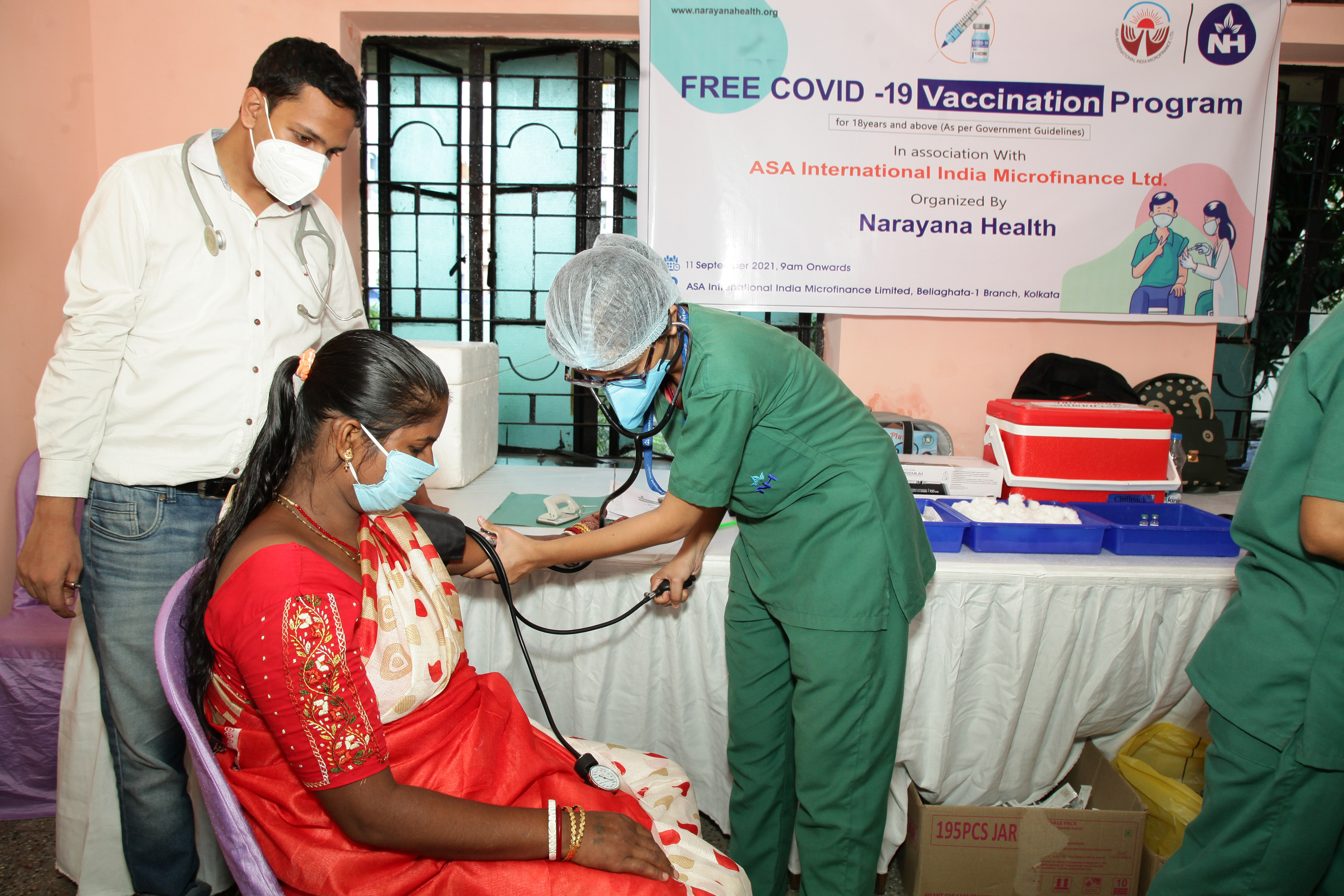
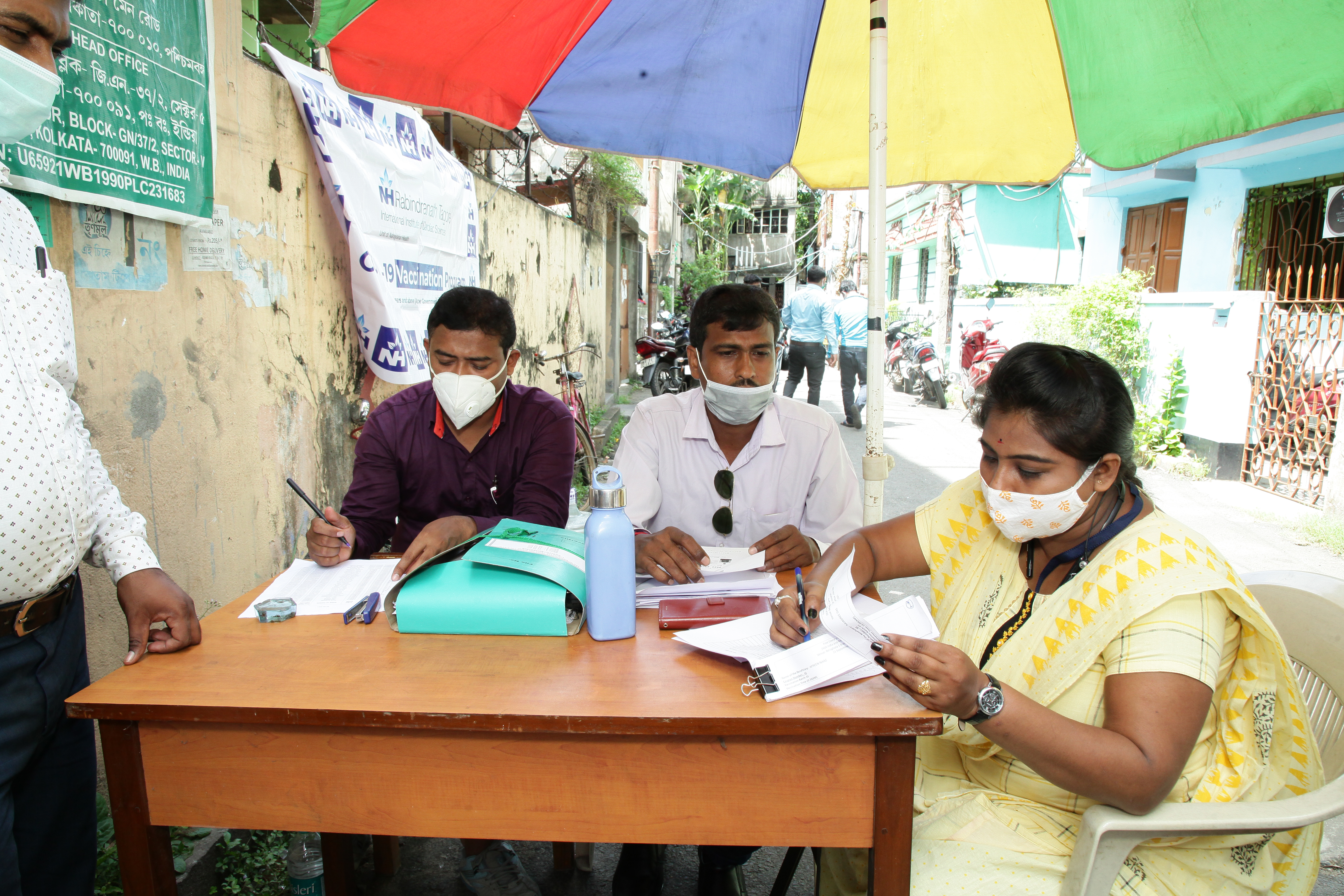
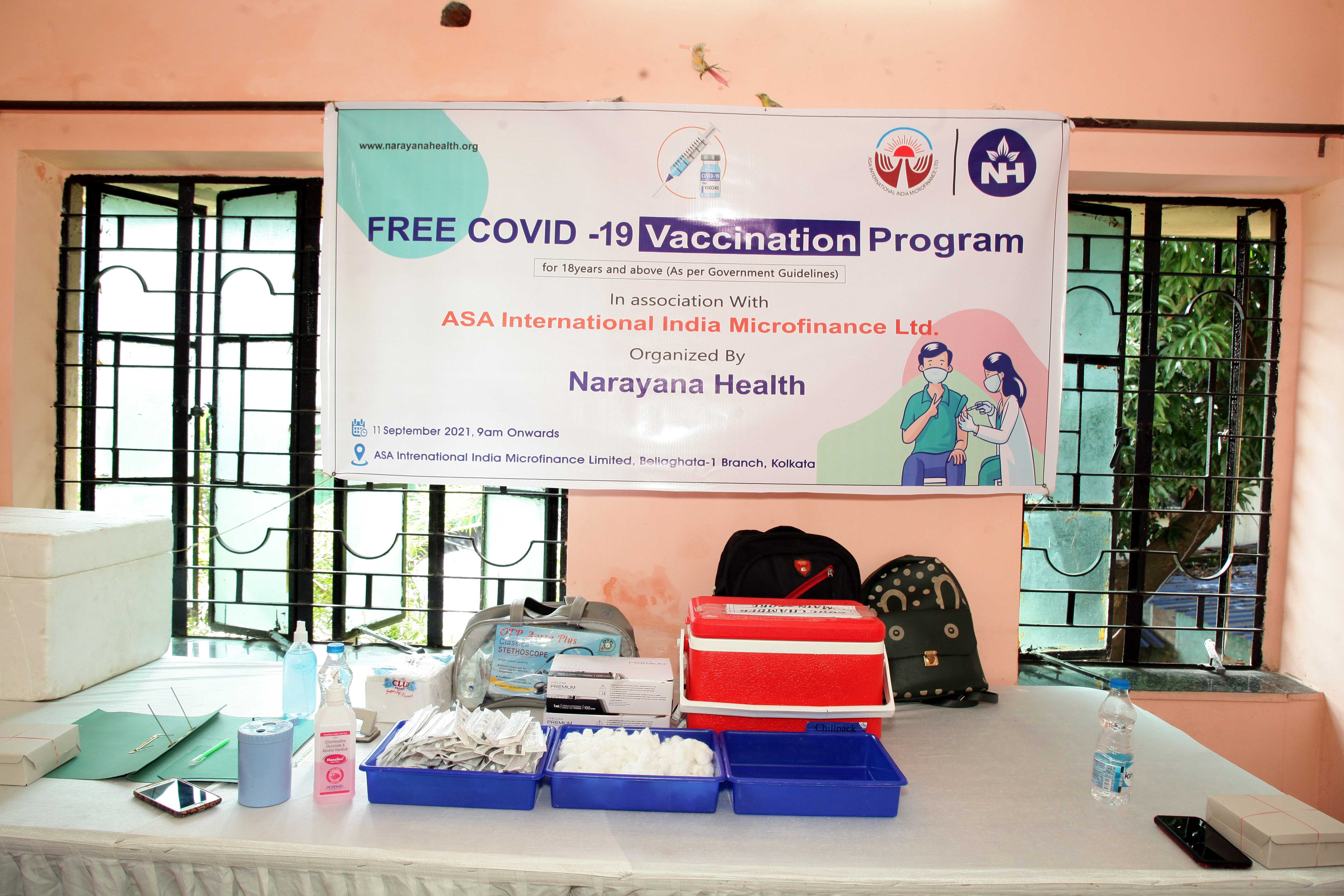
14% (191 million) of India’s population is fully vaccinated and 54% (710 million) are vaccinated with a first dose.
Update 2: The Second camp conducted
According to various sources, a third wave is predicted to commence in India.[2] As of September 2021, approximately 14% of India’s population is fully vaccinated, amounting to 191 million people, and 54% (710 million) are vaccinated with a first dose. Based on area-specific needs, lockdowns are still imposed in parts of India. In other regions, restrictions are slowly being lifted and people have started pick ember 2021,ing up their lives again. That said, this varies from state to state.
At a branch office in Beleghata
Considering the statistics, it becomes evident that vaccination efforts are still needed. The second camp by ASA India was held in the Beleghata area, Kolkata, once again in fruitful collaboration with Narayana Health. Similar to the previous camp, the main aim was to provide those in need of a vaccination, with a first dose. A follow-up for the second dose is planned in 12 weeks. In early October, such a follow-up camp is currently scheduled in the Rajarhat area. This follow-up is available for those who received their first vaccination at the previous camp or for others in need of the second vaccination in Rajarat.
Beneficiaries were selected from the nearby branch areas with the help of loan officers, who talked to borrowers and collected their details. Considering the vaccine is targeted at people with a low income, who cannot afford a paid vaccine, the main criteria were to check their yearly income, besides their age, willingness and vaccination status.
This time around, a branch office was used as a vaccination centre. Upon the approval of the Government Health department (Swastha Bhawan) and necessary local approvals, the camp was conducted. Over the course of the day, from 9.30 a.m. till 6.30 p.m., 516 people were vaccinated, out of which 68 were ASA India staff.
To manage the large crowd and program in a structured way, a flow-chart was drawn up.
The flowchart
The main challenge was to manage the large crowd and program in a structured way, To facilitate this in an orderly manner, a flowchart was drawn up by ASA India. Simultaneously, the chart presented a proper plan to hold the camp according to the protocol of the authorities. The flowchart proved to be extremely helpful in ensuring government approval and a smooth operation, so it will be followed in the upcoming camps as well.
The logistics work as follows: The beneficiary is met by three staff members to show their coupon, their invitation to the vaccination. After checking their time slot and name on an alphabetical list, they are offered entry. The next step is to move on to registration. After registration they are seated till called to the vaccination area in small groups. After the vaccination, they move on to the post-vaccination area to see if they experience any side effects. In the case they would feel unwell, a doctor and ambulance are present. If they feel good after 30 minutes, they are good to go.
A visual illustration of the flowchart is provided below.
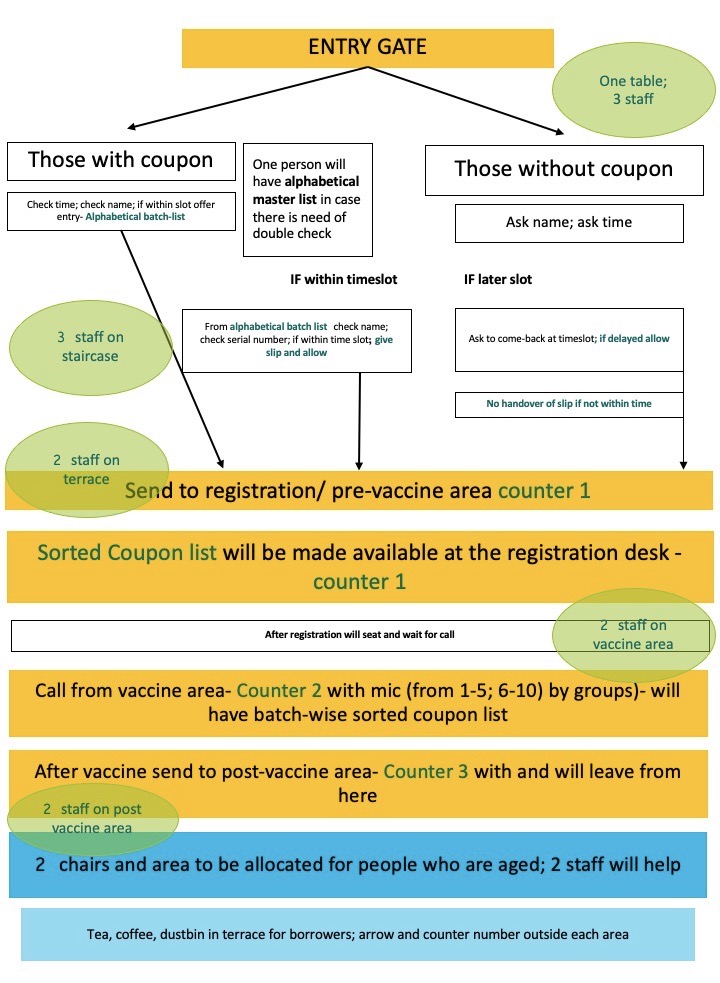
Stay tuned for the next update.
[1] Data retrieved on 19 June 2021. Source: https://ourworldindata.org/covid-vaccinations?country=OWID_WRL.
[2] Sources: the government, research institutes and media.
